
Everything you
need to know.
Can’t find the answers you’re looking for? Check out the Lift Applicant Handbook or reach out to Kaye Sklar, Lift Program Manager. We will add questions here as we receive them so make sure to check back.
Applications
What makes a good application?
The best applications will start with a very specific goal or problem that relates to using procurement to:
- Fight corruption and strengthen democratic institutions
- Protect the environment or improve climate resilience
- Promote economic and social inclusion
In your application, be as specific as possible about how better contracting processes will help you achieve these goals.
Lift is for systemic reform projects that seek to make progress across policy, processes, capacity, and data. It is not for general capacity building on open contracting or advocacy. While training, workshops, and open data publication and tools are important, they cannot be the whole of your Lift project—they should just be a means to reach your goal.
Also, we encourage you to be clear and specific about how you will measure and track progress against your goals. For example, potential metrics might be a reduction of sole sourcing, the amount of carbon emissions from infrastructure projects, the number of locally-owned women-led businesses who win contracts, etc.
What are the key questions that I should think about before submitting an application?
We require that you answer all questions and submit a complete application. To make the best application possible, focus especially on developing concrete answers to these four questions:
- What is the problem that you are seeking to address through Lift?
- Tip: Focus on a specific goal or problem relating to our challenge question: how will you use open contracting to…
- Fight corruption and strengthen democratic institutions?
- Protect the environment or improve climate resilience?
- Promote economic and social inclusion?
- What is the solution to this problem?
- Tip: Lift is for systemic reform projects. Think beyond rolling out a new platform or tool, or running workshops, or publishing data. Instead, explain what the future that you want to see is, and the concrete outcomes you anticipate by the Lift program’s end.
- What are your ‘powers’ to make change happen, and who in power will help you make this change happen?
- Lift is for teams that can achieve measurable impact. This requires Lift teams to have the power to make change. You might have to change regulations or policies, upgrade data or IT infrastructure, or rethink processes – doing so often requires political buy-in and robust mandates for change. Consider what organizational strategies or key relationships that give you the power to pursue your goal.
- Who is on your core team, and why are they involved?
Tip: Lift is for teams that have skills and represent the agencies or organizations that are integral for project success. For example, if your project is about improving the quality of public housing through procurement reform, it would be good to have someone on the team who is from the public housing agency.
What are good measurable targets/goals or KPIs for my project?
We encourage you to have measurable goals associated with your project that allow you to have baseline, progress milestones and end-of-program targets. Quantitative data can be incredibly helpful in ensuring that you work towards measurable progress. But we also know that it can be difficult to have high-quality data readily accessible to calculate key performance indicators (KPIs.) We will work with you as part of Lift to unlock and use more data and define KPIs. We are especially interested in measuring direct impact on communities, so if possible, please share an estimate of how many individuals might benefit from the reform.
We compiled a list of potential KPIs that you might want to include in your Lift application.
I’m interested in applying. Can I get help with the application?
Yes! You can receive more guidance on applying to Lift in the following ways:
- Read the Lift Applicant Handbook
- Attend one of the upcoming informational webinars
- Reach out to your country manager to set up a 1-1 session to review your application.
- Sign up to be notified of additional Q&As and resources
- Email our Senior Program Manager for Lift, Kaye Sklar
Can I apply in a language other than English?
Yes. We will accept applications in English, Spanish, French, Russian, and we will conduct interviews in all of the previously listed languages, in addition to Bahasa Indonesia. Technical support throughout the program will be available in all five of these languages as well.
Can I submit more than one project?
No, we want you to bring us your best and sharpest idea.Project
At what stage or scale should my project be to apply? Does it have to be an idea, prototype, or MVP? Should it be focused locally or globally?
Lift is open to projects at different stages of development and scale. You could be embarking on a new initiative, or working to refine and scale a piloted solution. In the past we have seen that Lift is especially helpful to test and refine new approaches that then can be scaled in more sectors, agencies, regions, or countries after the project ends. We require your project to have leadership support, which should include a budget for your work, a political champion, or a formal mandate. You could also be solving problems in your region, country, or city. Your project does not need to be able to scale globally.
Are there any sectors or topics Lift is particularly interested in?
No, we are open to a wide range of sectors. You qualify for Lift as long as you are working on a project relevant to our challenge question topics.
Can my project be for implementing the Open Contracting Data Standard (OCDS) or OC4IDS?
We are looking for projects that go beyond implementing OCDS or OC4IDS. Your project should be focused on our challenge question topics. However, implementing OCDS or OC4IDS may be one part of your project.
If your focus is solely on implementing OCDS or OC4IDS, Lift is not for you. Please review OCDS and OC4IDS documentation and resources for more information on implementing the data standard.
Is adopting and/or implementing the Open Contracting Data Standard (OCDS) or OC4IDS required to be eligible for the program?
No, but we do expect that your reform initiative involves making information or data more accessible, and we will work with you on this. We also expect your project to have quantitative KPIs or targets, and that you measure a baseline and progress along the way. We can help you with this. Lift can provide support in implementing OCDS or OC4IDS if it is part of your project.
Want to learn more about OCDS or OC4IDS? Visit the OCP website for information and resources.
Team
How can I be sure my team is the right fit for this program?
This program is best suited for teams who are:
- Focused on achieving impact in one of the three topic areas of Lift
- Experienced in building political support and navigating procurement systems,
- Working in a context with the technical infrastructure in place to deliver on their project, and
- Able and committed to invest the time required over the course of the program.
Open Contracting Lift is not for teams who only want support on tool development, advocacy, capacity building, or Open Contracting Data Standard implementation.
For a full list of eligibility requirements, see Apply.
How big should my team be? What key roles and skills should my team have to be successful in the program?
Applicant teams should include, at minimum:
- A Relationship Manager, who is skilled at building political support and navigating bureaucracy.
- A Procurement Expert, who is knowledgeable about navigating the procurement system.
- A Technical and/or Data Expert who is knowledgeable about procurement data publication, analysis and use, and/or is familiar in using procurement technology solutions.
- We also require two Team Leads who have the authority and capacity to coordinate the team and drive the project forward. If the team is cross-governmental or cross-organizational, we expect these leads would come from their respective entities to promote collaboration.
We suggest you keep your teams to 4 to 8 people for easier management. Note: One person can fill multiple roles. For example, the Data Expert may also be a Team Lead.
Should my team be from one organization or a collaboration of multiple organizations?
While we are open to stand-alone applications from civil society/nonprofit organizations or government agencies with outstanding project ideas and team capacity, we are particularly interested in teams that represent collaborative partnerships between government and non-government stakeholders. In the past, we have seen that teams that bring together many diverse actors from different stakeholder groups and government agencies are more effective in achieving change.
How many teams will you select?
We will select up to 9 teams for the program.
Context / Country
How do you determine country eligibility? Are there any particular countries Lift is interested in?
Lift uses Reporters Sans Frontiers’ World Press Freedom Index 2022. Lift is open to countries deemed “Good,” “Satisfactory,” “Problematic,” or “Difficult” by this index. Lift will not work in countries that are deemed to be in a “Very Serious” situation (color: dark red) according to the index.
Lift will consider working in countries that are deemed to be in a “difficult situation” (color: red) according to the index when applicants can demonstrate during the application process that there is collaboration amongst selected government and civil society actors and at least a partially safe space that civil society can work in.
We are not looking for any particular countries, but for a strong geographic spread.
Funding / Costs
Can I apply even if I receive funding or support from elsewhere?
Yes, we welcome all types of projects, including those supported by other sources.
Are there any costs to participating in the program?
There is no financial cost to participate, though you will be expected to dedicate about 1 day per week of staff time to the program. All applicants should already have funding for essential project activities and staff time.
Is there funding available through the program?
Participating teams are eligible for up to $35,000 USD of support from Lift to fund activities or deliverables depending on team needs and progress over the course of the program, as well as 200 hours of technical assistance and support from OCP.
How these funds are spent is flexible and is decided on a project-by-project basis, although these funds are not intended for core operating expenses such as staff salaries. All funding decisions will be made in collaboration with the team, your Lift advisor, and Open Contracting Partnership.
We are glad to co-fundraise with partners if additional funds are needed. Teams that demonstrate outstanding progress may be eligible for additional OCP support.
How the program works
Where will the Liftoff workshops be held?
We are currently planning to hold the workshops in-person in your region. The first Liftoff workshop will be held in August - September 2023, and the second Liftoff workshop in May - June 2024.
Who are the advisors and experts?
Practitioners will be supported by a core team of advisors from OCP who have extensive experience in building social and public contracting reforms. Your advisors will be selected based on your specific needs, and will help you apply best practices in areas such as user engagement, data use, change management, and contract design and management.
What can Lift help me achieve?
We expect teams to achieve measurable improvements by the end of the program. This will be tracked by key performance indicators that are developed with teams in the first phase of the program. We will support your efforts to gather and analyze procurement data so that you can set baselines and understand your progress.
Along the way, we anticipate that most projects will make progress on the following outcomes:
- Effectively build leadership support to drive a robust mandate for your project.
- Improve use of open data and open data systems to manage, monitor, and advance the quality of delivery of public goods, works, and services or expand access to opportunity.
- Establish new ways of working with public contracts to ensure contracting processes and contracts lead to intended results.
For inspiration, check out what other teams have achieved through Lift.
Can I still benefit if I don’t participate?
Absolutely! Throughout the program, OCP will document any new tools, approaches, and progress stories that emerge. To benefit the wider field, we’ll share this guidance regularly though blogs and events.
You can also receive support via OCP’s other resources and engagements. Learn more about these at OCP’s website.
Who is behind the Open Contracting Lift program?
The Open Contracting Partnership is a silo-busting collaboration across governments, businesses, civil society, and technologists to open up and transform government contracting worldwide. Bringing open data and open government together, we make sure public money is spent openly, fairly, and effectively on public contracts, the single biggest item of spending by most governments. They are a government’s number one corruption risk, and they are vital to make sure citizens get the services that they deserve.
What support will the Open Contracting Lift program offer my team?
Over this 18 month program, teams will receive:
- Two in-person Lift-off planning workshops to co-create and refine your project plan with your broader team and critical stakeholders.
- Planning visit in-person or virtually from OCP staff before or between workshops
- Regular bi-weekly meetings with Lift advisor.
- Up to US$35,000 financial support.
- Technical assistance on open contracting topics depending on your team’s specific needs, such as vendor engagement, user research, building buy-in with key stakeholders, advocacy, procurement policy, and capacity building.
- Data support to help gather and analyze your procurement data to set baseline KPIs and measure your progress, as well as publish your information if this is one of your project goals.
- Monitoring, Learning, and Evaluation (MEL) support to help learn during implementation, and document your project success.
In addition, teams are eligible for an additional 6 months of MEL and documentation assistance, as well as light-touch technical support, following program completion.
Check out the Lift Applicant Handbook for more details on what support you can expect from OCP Lift.


